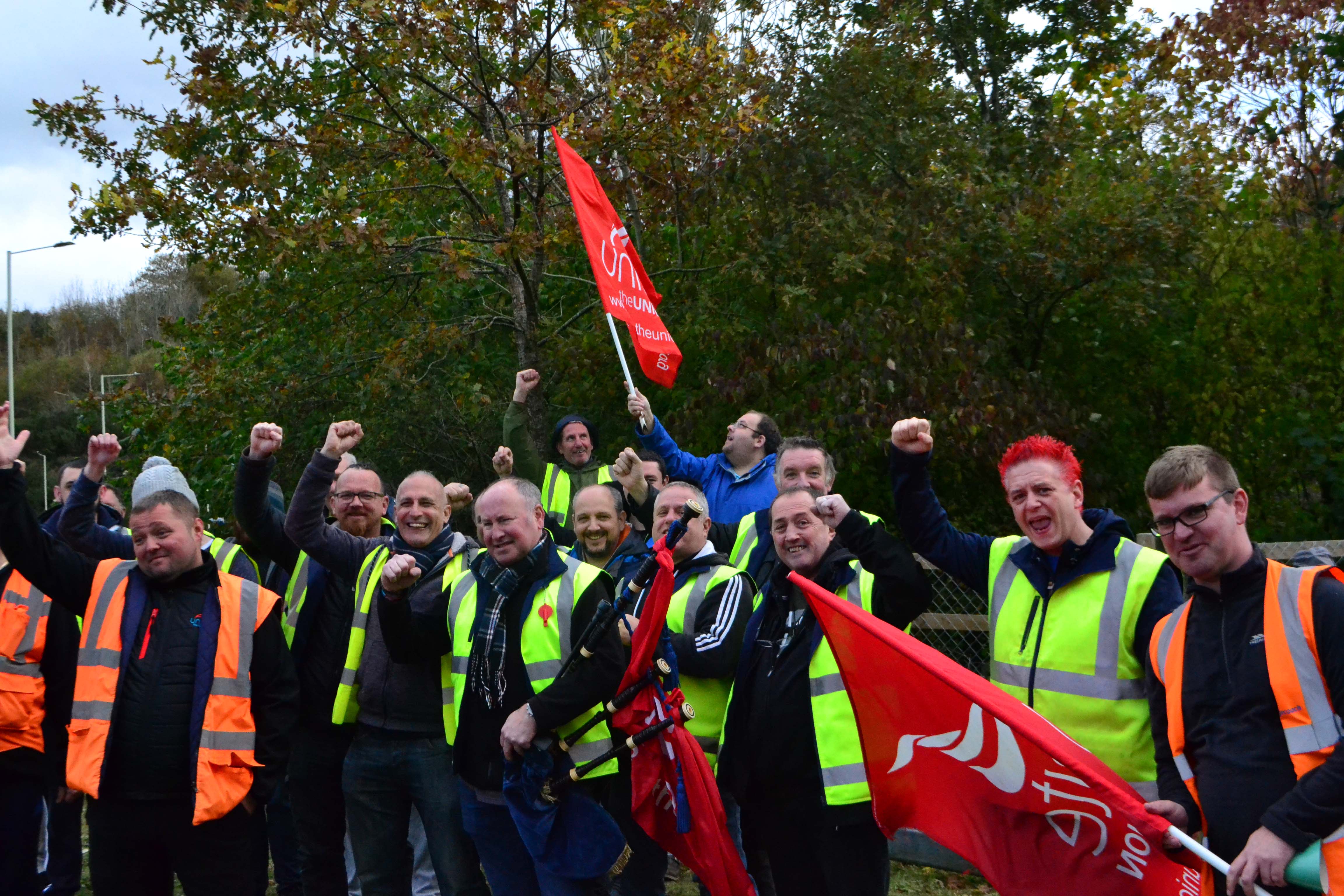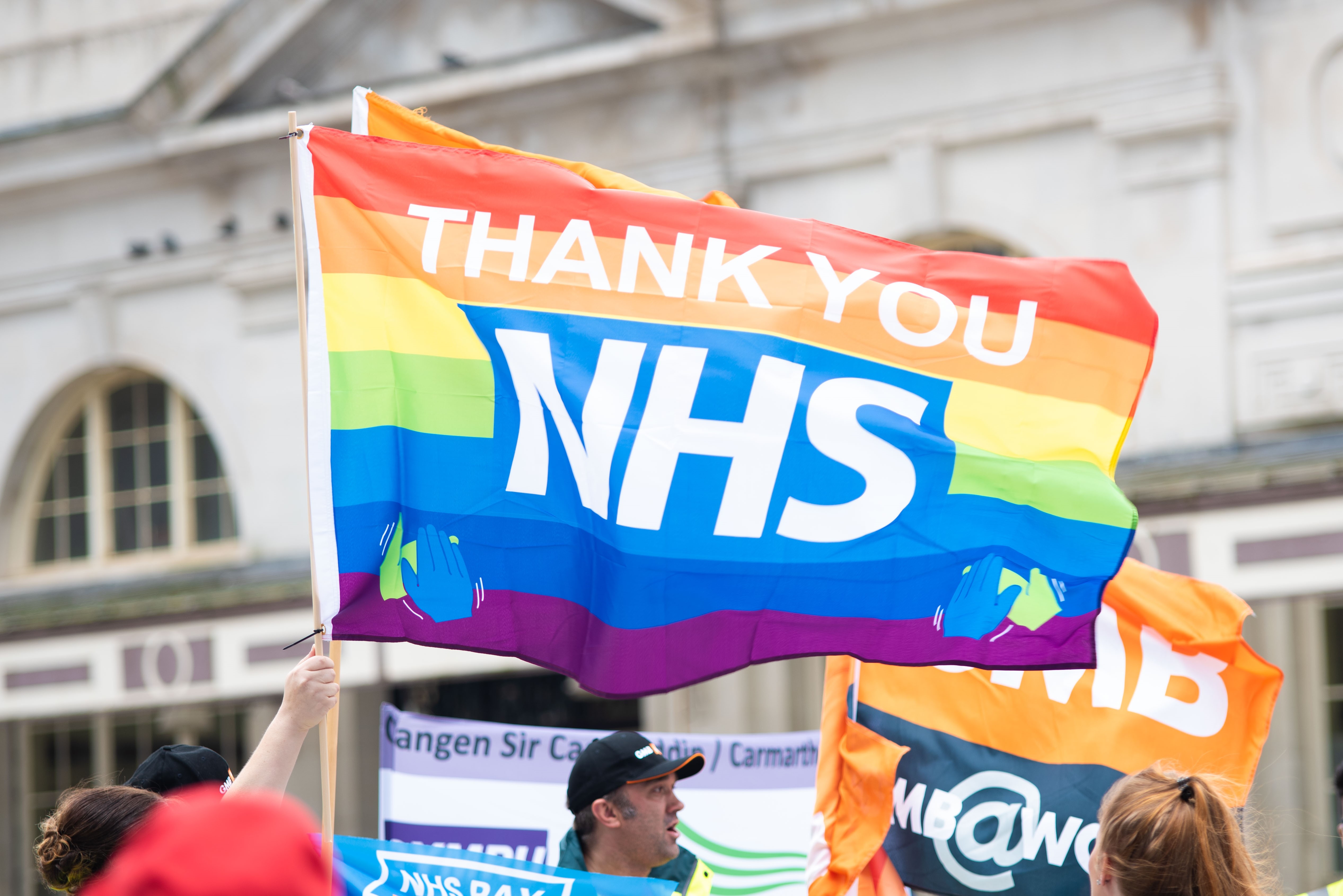
“Strike Against Low Pay” – Stagecoach Striker’s Message to Other Workers
Successful strike has lesson for all workers, says bus driver, as unions make a turn to industrial action amid labour shortages.
A worker who won a 10% wage rise after a 17 day strike has said that others in a similar position should “do it” and strike against low pay.
Gareth, from Blackwood, was speaking to voice.wales after the strike by members of the Unite union ended in victory, with drivers winning a £10.50 per hour wage – up from £9.50 – an increase in sick pay, and defending their terms and conditions.
“We stood our ground and we won,” Gareth said of the four week strike.
Asked what advice he would give to other workers in a similar position of low pay, he replied:
“Do it, go on strike, because if you’re feeling undervalued and you’re being underpaid then the only way to make them realise is through taking strike action.”
He said it was “an unfortunate position to be in” for workers.
“You shouldn’t be in that position [of low pay] in a company that’s earning so much money. But those are the necessary steps, if you’re getting anywhere then that last resort [of strike action] has gotta be taken.”
He also told us that it was crucial that workers at Stagecoach had been committed to the idea of prolonged strike action if necessary and were clear on their demands:
“People have got to be prepared to go all the way. That is really hard…[but] we were determined to take it all the way to January to get that £1 extra.”
The support of the union, Unite, including strike pay for workers was critical, he said, adding that leadership within the strike had played a big role.
This was crucial in getting “a deal that is either on par with what you want, or very close,” he said.
Gareth also stressed the importance of democracy in the strike and giving workers the opportunity to vote on whether or not to accept the deal, then acting collectively on what the majority decides.
“We were all in the same position,” he said. “So whether or not you’ve got a partner, family or you’re single, or whatever, you were all in the same boat, you were all fighting for that one cause.”
“And that one cause was to provide a better income for our families, for ourselves and also to raise public awareness of the low wages we’re on. A lot of people were absolutely stunned when we were telling them, ‘no we’re only on £9.50 per hour’.”
Following the strike, bus drivers are in line for a pay rise backdated to April 2021, which if it comes in time for Christmas will be a real boost for people. “It’s a big deal,” Gareth told us.
He said he felt that Stagecoach workers had “shown the strength of the entire [bus] sector” when it came to workers not accepting low pay any longer.
He said there were now discussions around a network of bus drivers following another strike by Arriva workers in north Wales. But Gareth said that the Stagecoach strike had also raised the idea of nationalisation of the bus network within the Welsh Government, the idea being to have one publicly owned operator where “we’ll all be paid on the same level for doing the same job.”
As things currently stand, bus drivers are forced to compete with one another over wages, leaving a situation where drivers in different depots are paid different rates even when they work for the same firm. This division exists within Wales itself and across Britain, leading to the situation where bus drivers in Manchester are paid more than those in Wrexham, even though they may cross each other on the roads.
The widely supported aim of the strikes has been to raise the wages of the lowest paid.
The strike also had a big impact on the mental health of drivers, Gareth said, adding that it “boosted morale” among the workforce.
“You’re spending time with people that you only see in passing everyday. There’s things you don’t really know about people, but everybody was kind of opening up.”
Gareth’s message may be hitting the right mood among other workers. Just this week, more than 560 Stagecoach bus drivers in Sheffield, Barnsley and Rotherham, rejected a 2% pay offer and backed strike action.
Workers in the bus industry have also found themselves in a strong bargaining position with a shortage of drivers. There are now an estimated 4,000 vacancies for bus and coach drivers across the UK as some drivers move into better paid jobs in the HGV sector.
But on top of this, the shock election of Sharon Graham as the Unite General Secretary, who won on a ticket of industrial organising, is also having an effect.
Talking to voice.wales during the strike, Alan McCarthy, a Unite union organiser for transport workers, told us that Graham’s victory had shifted things in favour of strike action.
“I think Sharon’s approach now is that we are going to be back in the workplace,” he said.
“And trade unions were founded on people saying, ‘no one’s gonna do it for me, we must, we must do it ourselves.’ I think that’s refreshing. I think it’s a refocus on traditional trade union values.”


